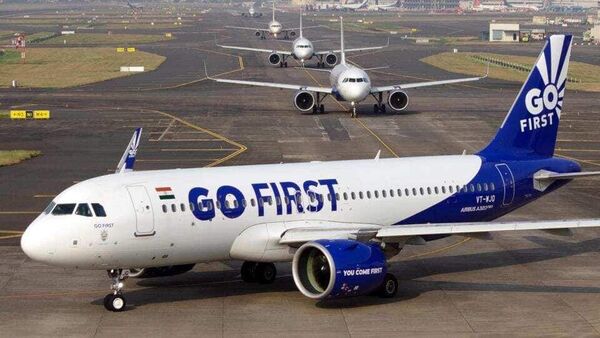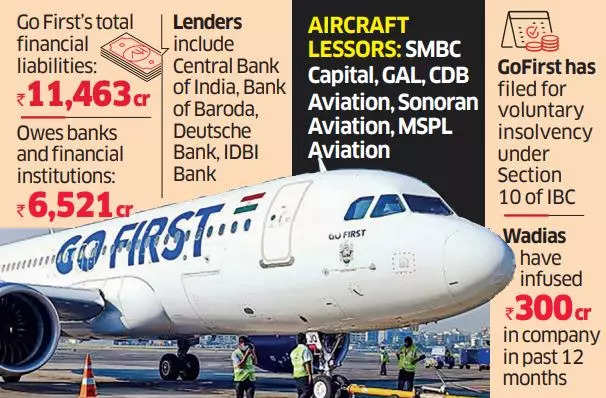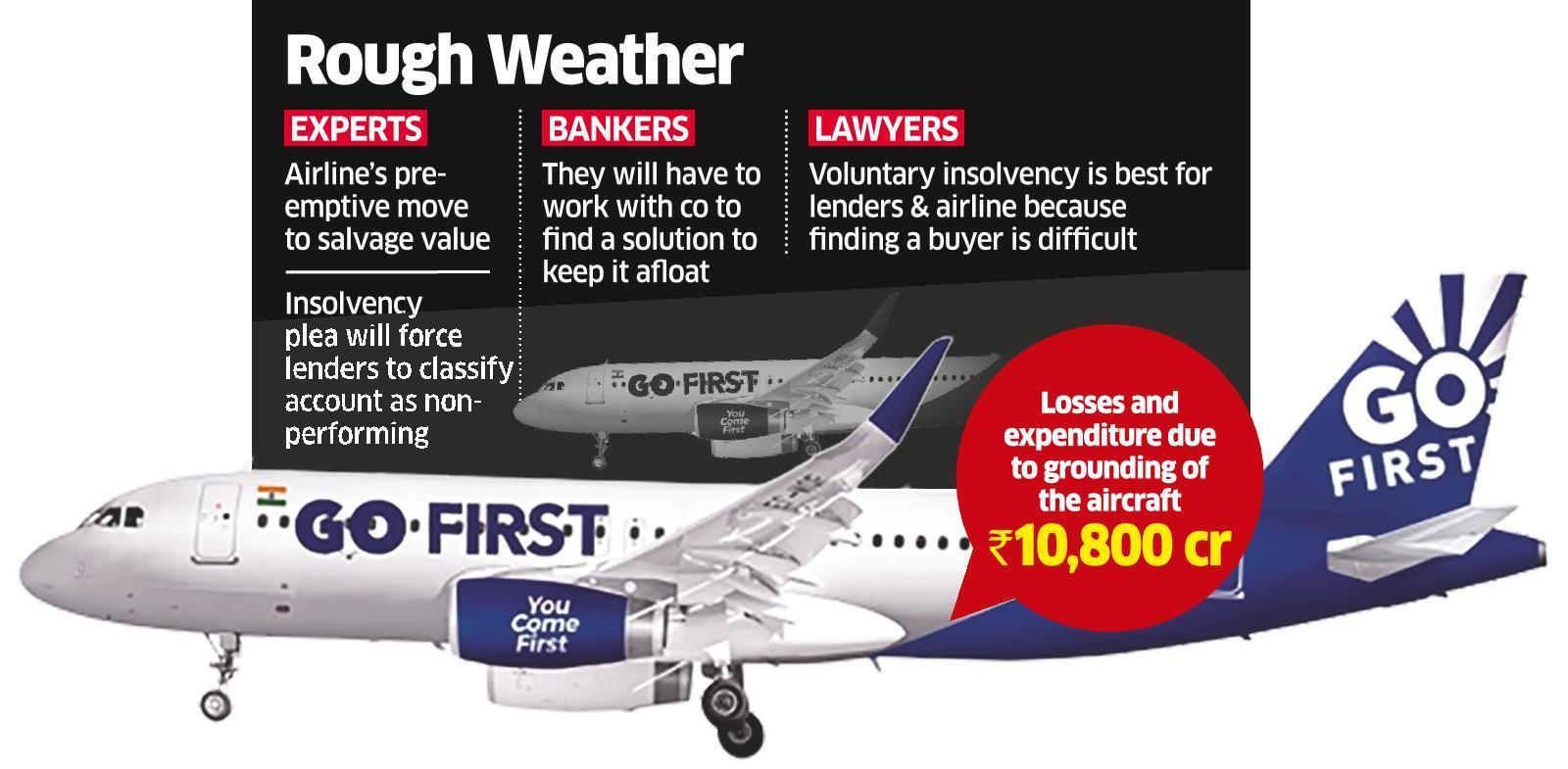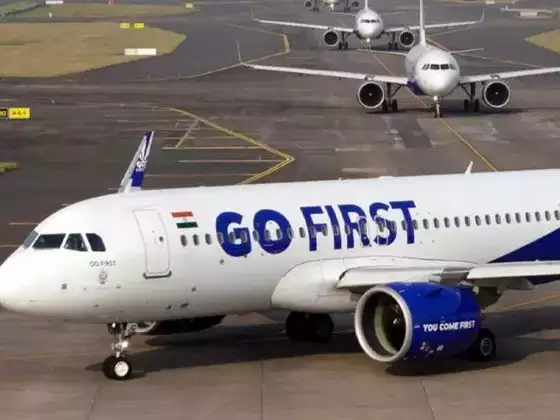The low-cost carrier, which recently changed its name to Go First, has claimed that the “faulty” Pratt & Whitney engines that grounded roughly half of its 54 Airbus A320neos were the cause of its financial difficulties.

The destiny of Go Airlines (India) Ltd, the fourth-largest airline in the nation, and its 7,000 employees will be decided on Wednesday in a bankruptcy plea decision that would also have significant repercussions for overseas lessors attempting to seize aircraft.
Pratt & Whitney Engines, the US engine manufacturer, a division of Raytheon Technologies, has deemed the allegations unfounded.
New Leadership, Aircraft Recovery Challenge
If the tribunal accepts Go First’s request, it will result in the hiring of a new resolution specialist who will take over the leadership of the Wadia Group-operated airline. At 10:30 am (0500 GMT), a decision is anticipated, with success for Go First being generally anticipated.
For the first time ever, an Indian airline voluntarily applied for bankruptcy protection in order to renegotiate its agreements and debts.
The unprecedented action could make it more difficult for lessors to reclaim their aircraft, who recently filed requests with the aviation regulator for the return of roughly 40 Go First aircraft due to unpaid rental obligations.
They now face a significant obstacle because the law forbids any such recoveries after bankruptcy proceedings for a company are commenced, according to attorneys and industry sources.
Simplified Aircraft Repossession
After joining the Cape Town Convention, the centre has made it simpler for lessors to repossess aircraft in the event that airlines fail to make payments.
According to lawyers, the absence of effective legislation to enforce the treaty implies that bankruptcy law will take precedence over lessors’ repossession requests.
Abhirup Dasgupta, a partner at HSA Advocates who specializes in insolvency law but is not involved in the Go First case, expressed great concern for lessors at the moment. He stated that the repossession requests would become insignificant if the insolvency and bankruptcy process comes into play.

There are serious worries that Go First’s bankruptcy may require lessors to file protracted legal action to enforce their rights to reclaim aircraft, according to two industry sources who advise several lessors.
According to one of the insiders, the lessors are concerned about having their assets detained in the nation with no clear procedure for repossession. Given the risks, the source added, this could result in increased leasing costs for airlines in the future.
Due to lack of authorization to discuss the matter publicly, the industry sources preferred to remain anonymous.
Go First’s Lessors Seek Alternatives Amid Suspension
Go First’s lessors consist of prominent international entities like Jackson Square Aviation, SMBC Aviation Capital, and CDB Aviation’s GY Aviation Leasing.
The suspension of Go First’s operations is significant as the airline held an approximately 8% market share in the world’s third-largest aviation market. This development coincides with Prime Minister Narendra Modi’s efforts to highlight India’s growing prominence in the aviation industry.
larger rivals As domestic air travel reaches pre-pandemic levels, IndiGo and Tata Group’s Air India are developing significant expansion plans with hundreds of additional planes on order.

According to the two industry insiders, several lessors have begun negotiations with IndiGo and Air India to purchase Go First’s aircraft, though it is unclear how the tribunal’s Wednesday ruling may affect these discussions.
IndiGo chose not to provide any comments on the matter, while Air India has not responded promptly.
In the event of Go First’s collapse, it would join the ranks of other airlines such as Jet Airways, which ceased operations in 2019, and Kingfisher, which faced failure in 2012.













